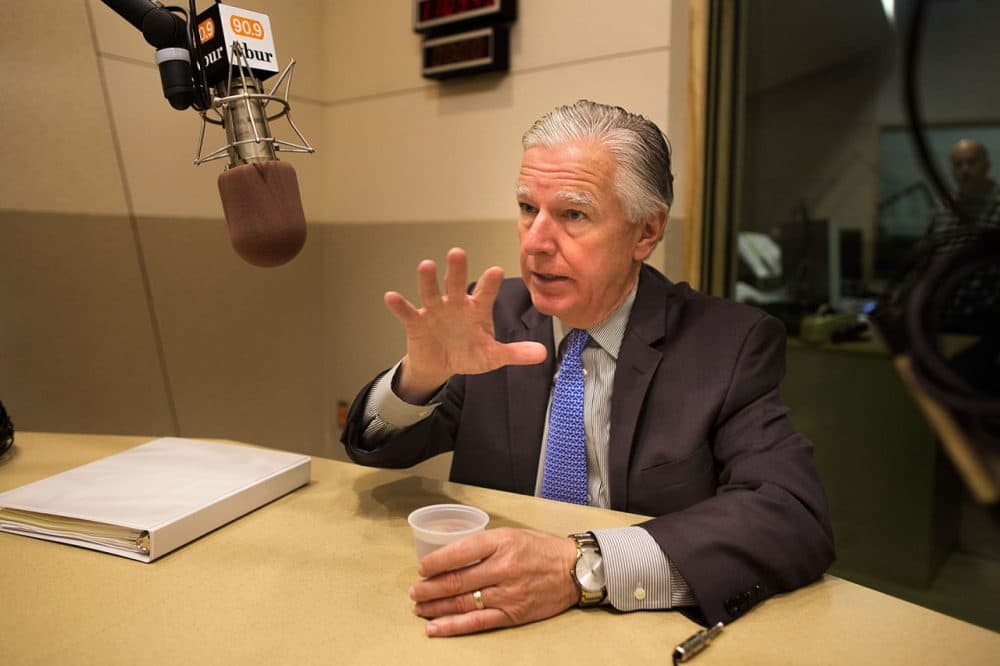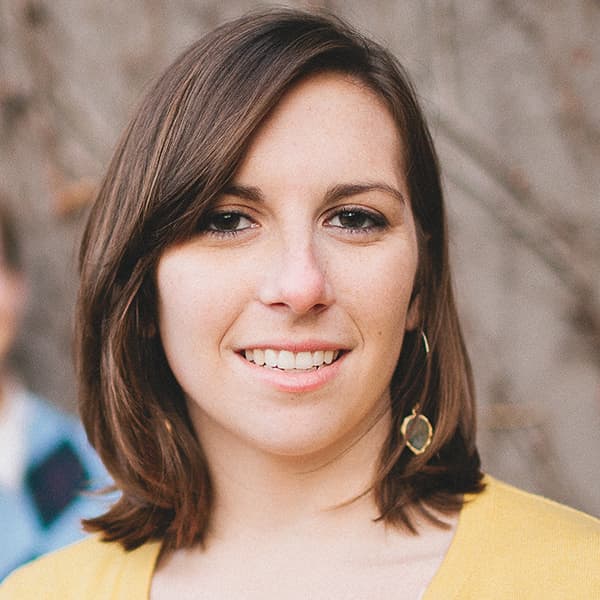Advertisement
UMass President On Trump Administration's Immigration Policies
Resume
The president of the University of Massachusetts joined us in studio to talk about how President Trump's policies are affecting higher education, the appointment of Betsy DeVos as secretary of education and the affordability of education.
Guest
Marty Meehan, president of the University of Massachusetts. He tweets @martymeehan.
Interview Highlights
On Meehan's reaction to new rules issued about implementing President Trump's immigration policies
"I'm certainly glad it appears that the [Deferred Action for Childhood Arrivals] policy that the Obama administration had will stay the same. But my reaction is that you're still creating an environment that on many of our campuses at UMass, students [who] are trying to get an education feel threatened and these kinds of policies, I think, are not good for American universities.
... Approximately 10,000 of our students are international students, if you count undergraduate and graduate students. We recruit faculty from all over the world and faculty are concerned about it.
As a matter of fact, when the president's first order went into effect, we had two faculty members from UMass Dartmouth that were attending an academic conference in France and they were detained at Logan Airport. That's one of the reasons why we joined with Attorney General Maura Healey in her suit.
I think we are creating an environment that has our campuses nervous, concerned — and I think that will continue with this policy."
On whether colleges have become too elite and are contributing to a class divide
"I think that may be true at some colleges and universities, but if you go to UMass Boston, you'll see that nearly half of the students there are first generation, first in their families to graduate. You see at all of our campuses, the income levels of people that come to the University of Massachusetts is still very, very diverse.
But I will admit I would watch programs like 'Meet The Press' and they would analyze polls during the political campaign, and they would make it a point to say that non-educated people are for Trump by this margin or that margin, and I think there was a backlash there to be honest with you. I think people, particularly those people in the middle of the country, were offended by that. They're offended by maybe academic institutions, offended by what they consider to be the elite media.
But what it really has been about, I think, is people are frustrated that the next generation doesn't seem to be doing as well as the previous generation in terms of the economy, in terms of jobs, in terms of people's lot in life.
I do know this though — anyway you look at it — a college education increases the likelihood that someone will be able to get a job at a higher salary and be able to achieve their full potential. So I think the answer to working class families across this country is still to get a high-quality education that will enable them to get a job, to make better lives for them and their families.”
On his assessment of Secretary of Education Betsy DeVos
"It's really difficult to tell what her perspective would be on higher education generally, or public higher education in particular.
I have heard some comments from President Trump relative to interest rates that are charged. I think that's an area where the federal government could do much better. It's unconscionable to think that somebody could get a loan to buy a house and pay less of an interest rate than what we are charging for student loans. Some of the rates are out of control. I would hope that more grant money, Pell Grant money, would be provided to students.
But in terms of looking at the new secretary of education, it's nearly impossible to tell what her view would be because she really doesn't have a record on higher education."
On the biggest challenge facing higher education over next five years
"I think it's increasingly a competitive business, higher education. Students and families are increasingly looking at a more critical way to look at what the value is — to look at the job prospects if somebody graduates from an institution.
... I think what I would like to see happen is I'd like to see colleges and universities find ways to cut the costs and that's going to involve utilizing technology more effectively. Training, utilization of online programming, for example, I think all of that will come into play, offering more courses online, blended learning."
Watch:
This article was originally published on February 21, 2017.
This segment aired on February 21, 2017.

